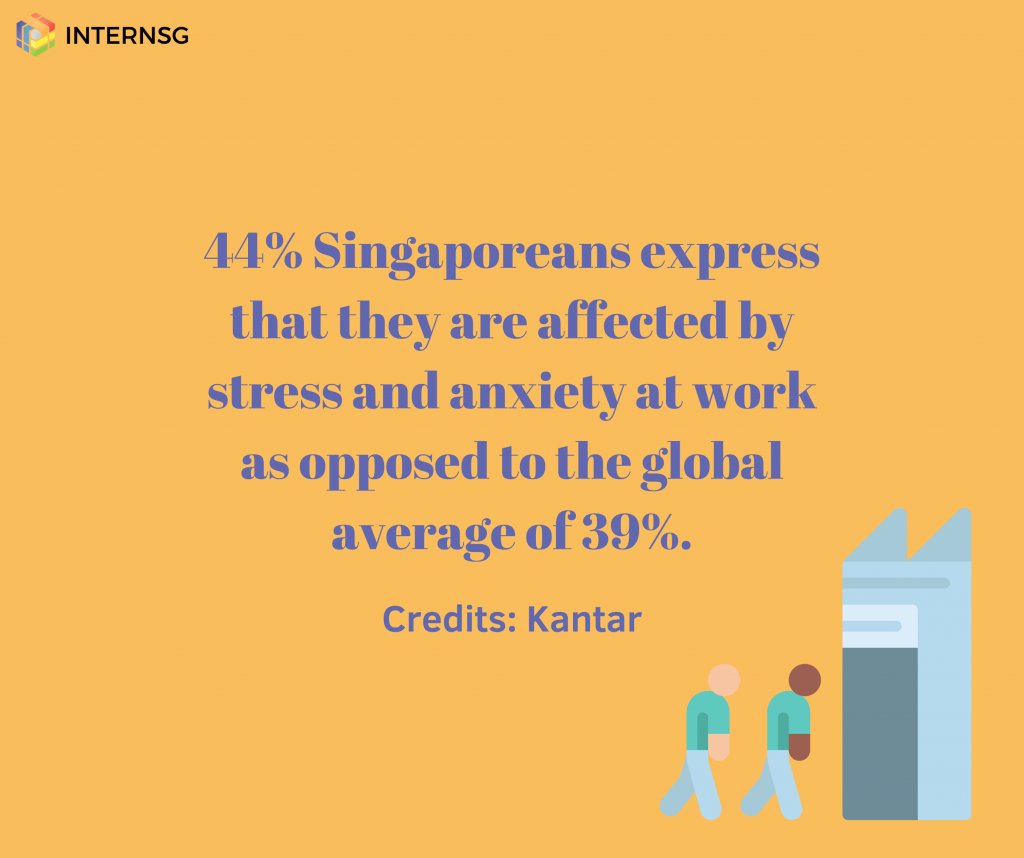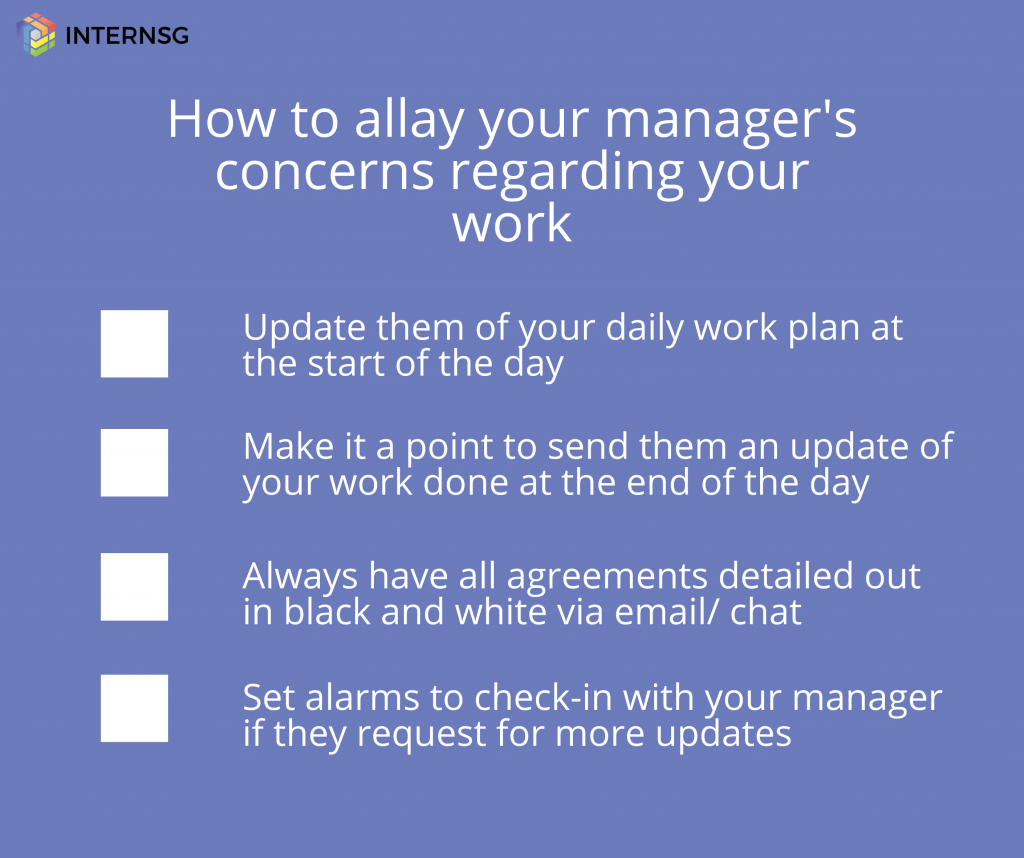In a survey by Kantar, 44% of people working in Singapore are affected by “stress and anxiety” at work when the global average is at 39%. Many of us would spend a large proportion of our lives on work, it is important to understand the causes of stress and anxiety in the workplace. The workplace that you work in has a large impact on your health!

The truth is, there are no perfect workplaces or perfect workers. While some of these traits may exist in a fairly healthy environment, toxic work environments generally share a combination of these traits or more.
“It’s common sense”
Through our school years and workplaces, it’s a common phrase heard in many contexts in Singapore. While this may come off harmless, this phrase usually pops up when something doesn’t happen according to expectations. When you hear this from your manager, especially in environments where SOPS and work expectations were not clearly defined, this phrase often feeds toxicity in the long run.
Here’s why the phrase does not work to manage people well:
- What is common sense for someone is not common sense for another.
- It is a vague statement that does not provide solutions to the problem.
- This negatively affects the esteem of the recipient as it suggests that they either didn’t put in the effort to know or they lack the capacity to understand something simple.
What you can do:
If you realise that you have been receiving this comment from your supervisor a fair bit, fret not. As this comment is naturalised in our culture, some may not realise the long term impacts of this. Turn the situation around by asking the right questions. The following are some questions that you may ask to clarify any expectations that you found vague.
While this comment itself is usually said with harmless intent, combined with other issues listed here is what makes a work environment toxic.
Micromanaging culture
Micromanaging is a trait which slows down the workflow process. These are the usual signs that your manager or workplace has a culture of micromanaging:
- He/She requires you to check-in with them many times throughout the day
- If you are working remotely, you may receive frequent calls for updates on your work
- You find yourself explaining your work more than doing your work

What you can do:
This is something which can be managed. If this is an issue of giving your managers assurance, try the following:
- Inform them of a detailed daily plan at the start of the day to inform your manager of what you are doing.
- Discuss and agree upon different timings to check-in with your manager. Have this documented in black and white via email to keep both parties accountable to their words.
- Set alarms for check-in timings to update your manager.
If the aforementioned has been done and there aren’t any improvements in the situation, perhaps you may want to think through your options. Should you continue to work in the company, note down your boundaries and goals you would like to see through while working in that environment. This would help you maintain motivation to produce good work should you choose to remain in the company.
‘Kiasu’ culture manifesting as a hyper defensive culture
If you have been in Singapore for some time, you will definitely have heard of ‘kiasu’ culture. While ‘kiasu’ directly translates to being afraid of losing out, it manifests in the workplace in different ways. Sometimes rears its head in a colleague who tries to get ahead of the curve. Most of the time, it is expressed as a general culture of people being afraid to take up more responsibility because of the fear of things possibly going wrong. This affects the team synergy and productivity. Business decisions which were made are cancelled out, leaving the team to constantly change plans when more output could be produced in the time spent tethering between decisions. More vocal staff will also find themselves speaking up less- leaving less room for suggestions.
What you can do:
Should you have any suggestions that you wish to speak up on, write them down and the rationale behind the suggestions in your personal notes. This way, you don’t forget what you intend to express. Before expressing your suggestions, think through who is the person in charge of the projects or group. Try to find an opportunity to speak with them in a less ‘formal’ setting like during lunch or in the pantry. If you are working from home, you may even schedule a call with them after lunch when they are more comfortable. You don’t want to tackle the hyper defensive culture directly as that usually creates more offense than positive change. Everyone has the potential to cultivate their soft diplomatic skills and this is the context that you would need.
Overloading the capable candidate with too much work
In fast paced working environments where KPIs are not clearly defined, it is quite common for the more capable team member to be assigned more work. This is great for your learning if you are one of them. While it is good that you are proactive, when does this boon become a curse?
One of the most common cases of overloading would be when you begin to take on work outside of your department. For example, if you signed up for a job description that asked for copywriting under the digital marketing department, learning how to design collaterals is fine if you can cope. However, if you were assigned work outside of the marketing department on top of this additional workload, that is not optimal for your production output.
What you can do:
If you are not sure of how to define when it is too much work, you may run a google search on different job descriptions pertaining to your role. Having some samples of the job descriptions across different companies would give you a good feel of what it is an appropriate workload should there be an increase in tasks for you.
Additionally, if you work in an environment that requires adaptability, have a word with your manager every week. Discuss what are sustainable kpis for you that also fits the company’s goals. Document this in black and white via email so that both parties may refer to it should any disagreements arise.
There will never be a perfect workplace. That being said, you really don’t want to be spending your time at work with excessive negative emotions. This is why it’s important to note the little signs which reflect toxic workplace culture. If enduring the toxicity in your workplace brings you closer to your career goals, anchor yourself in motivation sources which will tide you through. Otherwise, start planning your exit from the company.
